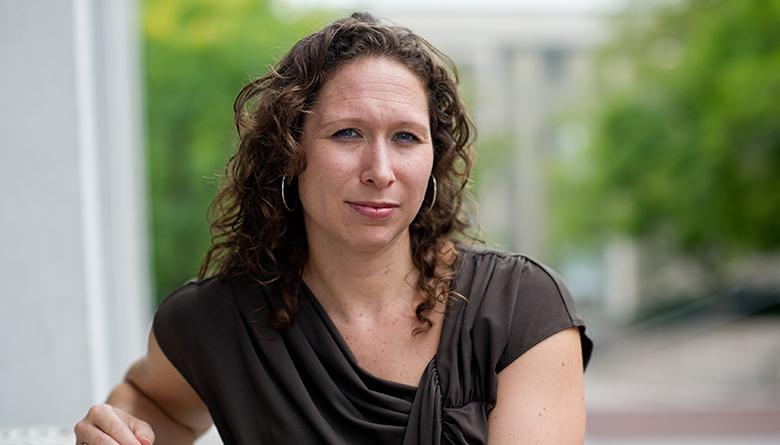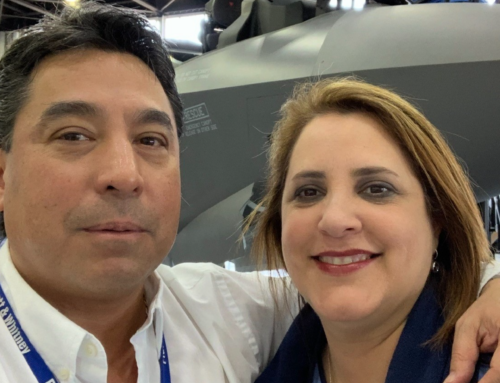
By Rebecca Webber Gaudiosi ’99
Co-author of Negotiating at the United Nations
 Your community, business, or organization is facing a monumental policy challenge requiring a solution. Maybe it’s a new regulatory need (or threat), an environmental concern, or a public health issue. There are multiple actors, myriad vested interests, and vast differences in perspective on the solution (or on the need for a solution at all!). Radically different data sets and assumptions are cited from proponents on each side. The question appears unsolvable. But at least some of the stakeholders believe there’s a problem, and everyone has an interest in the outcome, so something must be done … This is the set up for a classic multilateral negotiation.
Your community, business, or organization is facing a monumental policy challenge requiring a solution. Maybe it’s a new regulatory need (or threat), an environmental concern, or a public health issue. There are multiple actors, myriad vested interests, and vast differences in perspective on the solution (or on the need for a solution at all!). Radically different data sets and assumptions are cited from proponents on each side. The question appears unsolvable. But at least some of the stakeholders believe there’s a problem, and everyone has an interest in the outcome, so something must be done … This is the set up for a classic multilateral negotiation.
In a changing, interconnected world where climate change and human impacts are altering the equation of our daily lives and every individual and entity in society has an interest, we will collectively face ever-more-difficult policy debates and decisions at the local, national, and international levels.
How do we deal with these issues when there are conflicting interests? We can talk about the many issues—and solutions—but we also need to institutionalize how to arrive at the right answers, how to develop the right policies, and how to do that in a way that makes them stick.
I spent close to 10 years negotiating at the United Nations (UN), and I believe that multilateral outcomes—those truly developed inclusive of all the stakeholders—offer the only workable policy solutions to our ever-expanding challenges.
Lesson One: Make friends.
The other stakeholders in the discussion may, in reality, feel and behave more like combatants than friends, but it’s a mistake to view them this way. Better solutions come from listening and brainstorming, and creating an atmosphere that fosters these. Get to know your counterparts and understand them—all of them, not just those who appear to be more on your side. It’s in everyone’s interest to get to a good policy outcome.
Lesson Two: Think motivations.
The next thing to do in any negotiation is to assess your counterparts (after getting to know them a little). Each individual representing a group or organization will likely have both a professional and personal agenda. Especially on issues like the environment or health in which individuals—even those representing an organization—feel rightly that the stakes are personal. Further, every “negotiator” will have both policy outcome goals AND more personal interests driving their behavior (i.e., catch the attention of that attractive industry rep, impress the new boss with a tough win, etc.). Differences in perspective on the problem—the hardest hurdle to overcome—are based in different underlying assumptions and can be rooted in these personal/professional goals and interests. It helps to try to view the issue from another’s angle, as this will better enable you to lead your counterparts through the problem from your point of view.
Lesson Three: Remain calm and self-aware.
While engaging in debate on the important issues under discussion, it is important not to let emotion blind you, or allow your counterparts’ emotional theater to mislead you. Stay calm, listen to the underlying interests being conveyed, and hold your ground for a fair deal. As most of us learned in Psych 101 (or its equivalent), emotion leads to mistakes and poor decision-making.
Lesson Four: Be a creative problem-solver.
Sometimes there just isn’t a universally agreeable solution to a problem; more often, however, there is at least a mutually disagreeable one. In a seemingly intractable debate, getting to a good outcome often just requires significant creativity—maybe even redefining your idea of what a “good” outcome looks like. In being creative, protect the core interests of your position and maintain your bottom line—don’t erode your list of “absolute must-haves” unless it was unrealistic—then find a deal that meets them while allowing the other parties to meet theirs. That deal may not look anything like the outcome you expected, but if everyone’s core interests are met, then it’s OK.
Lesson Five: Protect the legitimacy of the outcome.
For an outcome to be successful (and by that I mean be “accepted” and implemented by the parties), its “legitimacy” is paramount. For an outcome to be legitimate, each participant needs to feel that the process was fair, that everyone won some/lost some, that their bottom lines were protected, and that they weren’t bullied or sidelined. Further, participants in the policy discussion are likely colleagues or neighbors, community players, or “future combatants” AND you’ll negotiate with each other again. It’s therefore essential that negotiators, especially powerful parties, avoid the “gorilla trap.” Bullying or betraying the trust built in a discussion may help one (gorilla) party to easily win its position in one specific debate, but it’s a losing tactic in the long run. Each negotiator’s behavior helps set the tone not just in this debate, but in future discussions, and a deal made in bad emotion will mean a deal that doesn’t work as well as it might have otherwise, because its legitimacy is in doubt.
Lesson One is really the most important of these. In every negotiation, I’ve found that it’s the key to a successful outcome. The other lessons show us that—equally important—is each individual negotiator: you and your approach will make all the difference in any policy debate. Each individual has power—to impact the tone of the discussion, the terms of the debate, and the legitimacy of the process. She also has a responsibility—to herself, her position, and a workable policy outcome. That power and responsibility are increasingly important in public and international policy debates. Because this stuff is serious.
Rebecca Webber Gaudiosi ’99 is an engineer, scientist, and former diplomat with expertise in environmental and sustainable development policy. She represented the United States at the United Nations from 2006 to 2014, leading on U.S. engagement with over 25 multilateral organizations and participating in dozens of negotiations. She is a co-author of Negotiating at the United Nations (Routledge 2019).




